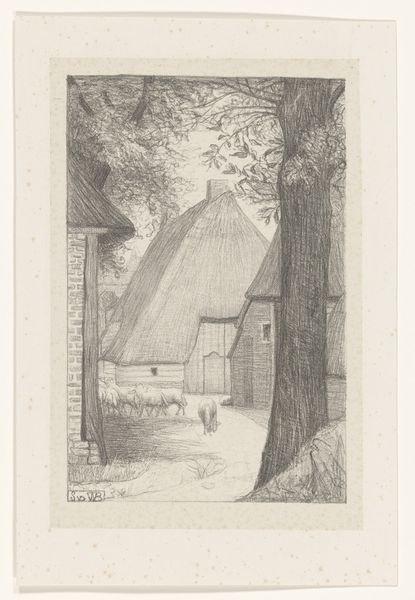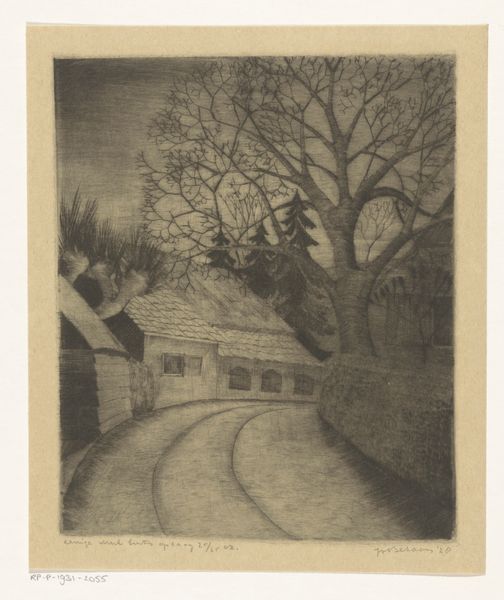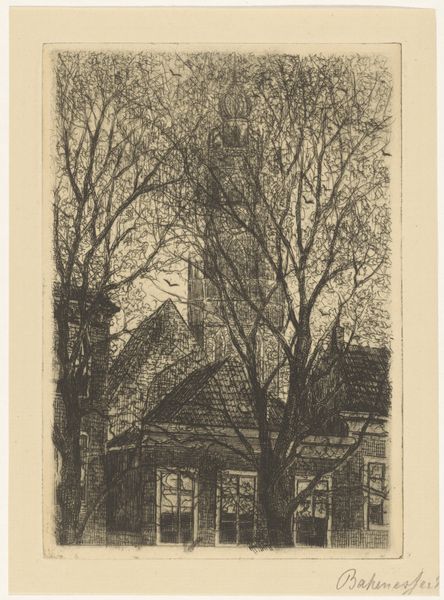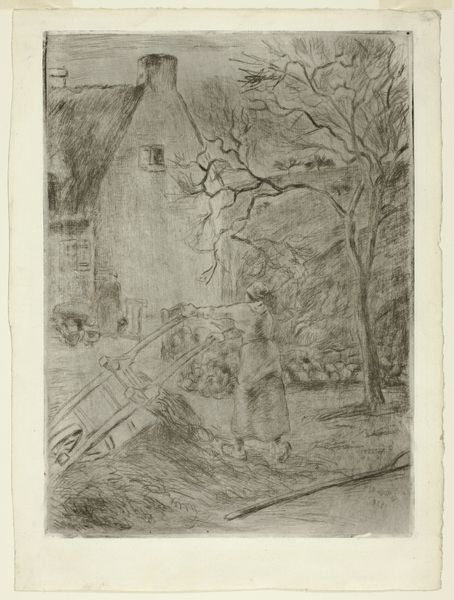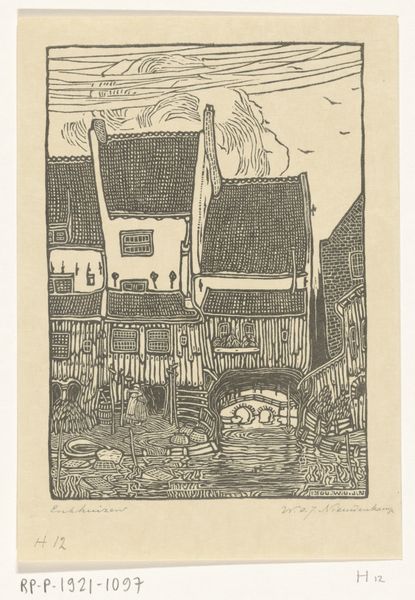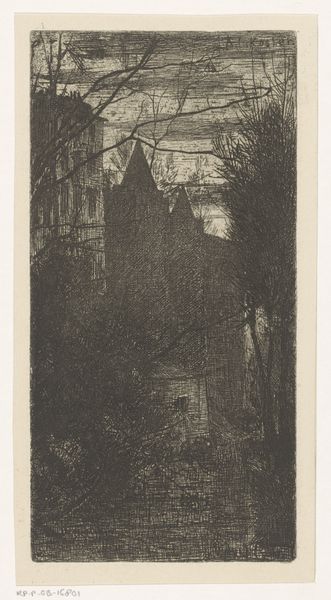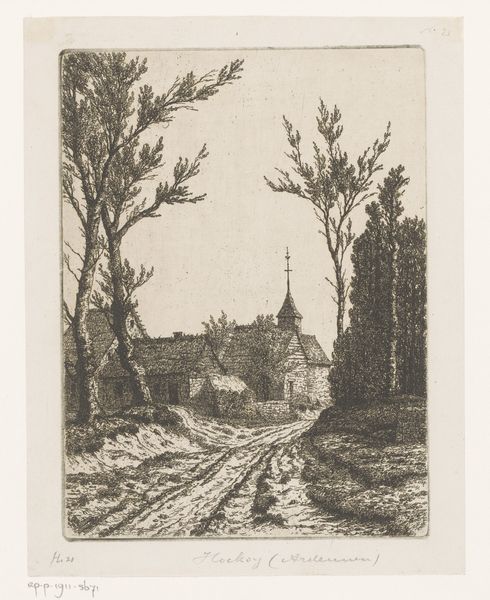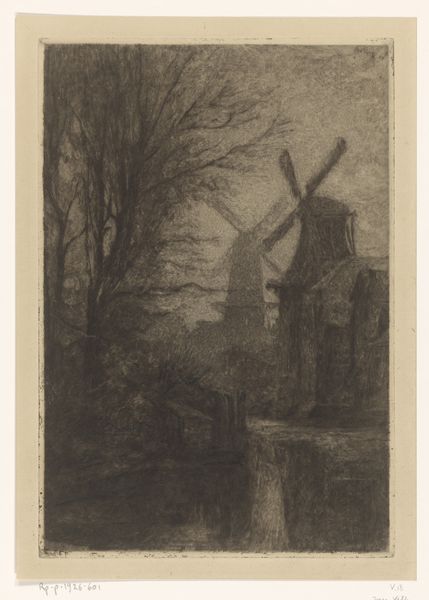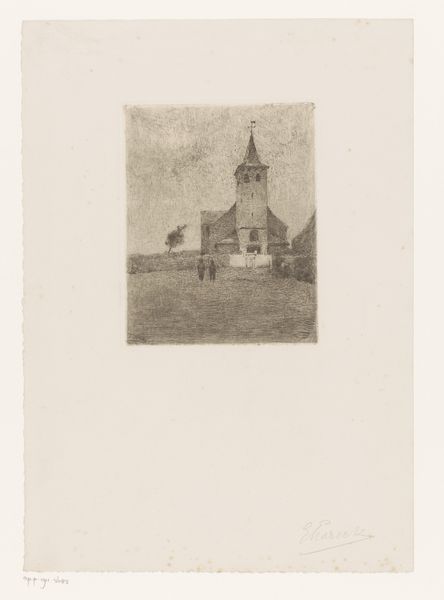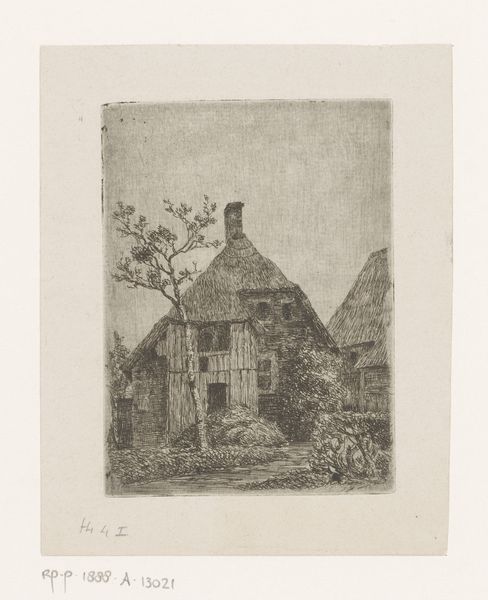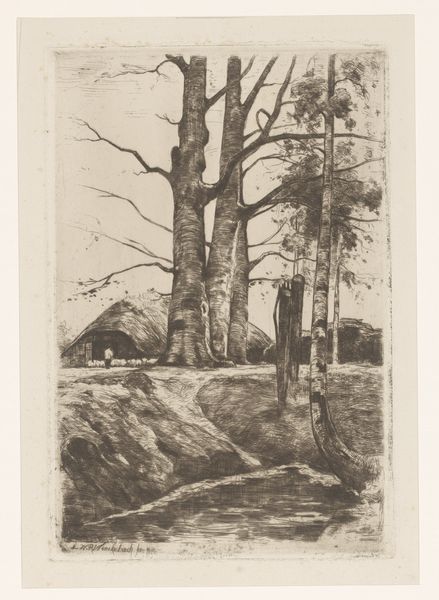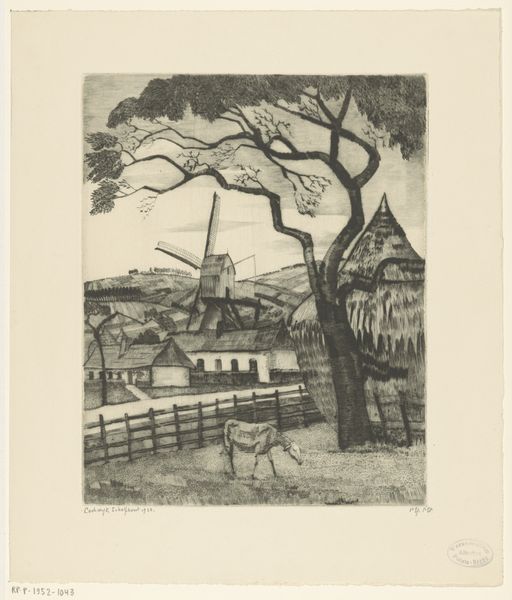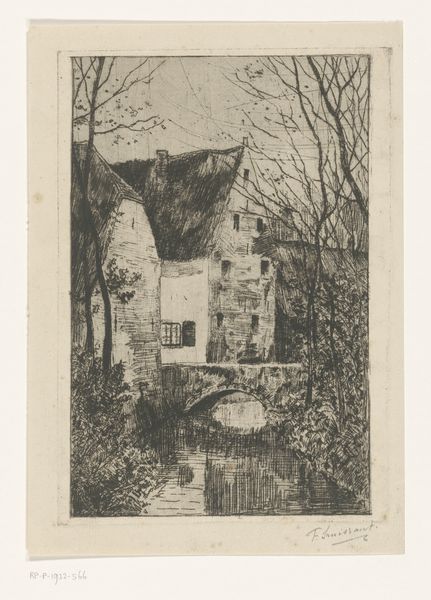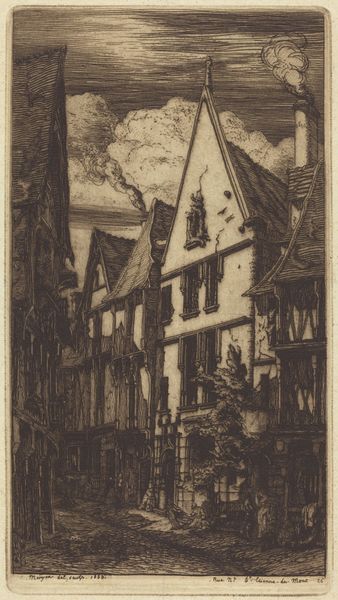
print, etching
#
aged paper
#
toned paper
# print
#
etching
#
old engraving style
#
landscape
#
personal sketchbook
#
cityscape
#
realism
Dimensions: height 240 mm, width 156 mm, height 265 mm, width 180 mm
Copyright: Rijks Museum: Open Domain
Editor: This is "Dorpskerk," created in 1924 by Jo Bezaan. It's an etching, currently held at the Rijksmuseum. I’m immediately drawn to the contrast – the crisp lines of the plowed field against the soft, almost dreamy quality of the church and trees in the background. What can you tell me about it? Curator: It's fascinating how Bezaan frames the sacred space, the church, through the lens of the everyday: agriculture. How do you think the decision to position the Dorpskerk within this cultivated landscape speaks to the evolving role of the church and its public imagery in the 1920s? Editor: It makes the church seem more accessible, more a part of daily life rather than something separate or imposing. Was there a movement to make religion more integrated within communities at the time? Curator: Precisely! There was a palpable shift, post-World War I, to re-evaluate established institutions. The devastation of the war prompted many to seek solace and meaning not in grand narratives but in the everyday. Bezaan’s choice of medium, the print, makes it democratic and accessible, compared to painting that serves for wealthy patrons and institutions. Where do you imagine it might have been displayed and who it would be displayed for? Editor: Maybe in local print shops or even distributed as part of community initiatives? The "aged paper" effect also contributes to a sense of history and connection to the past. Curator: Exactly. Bezaan provides an intriguing commentary on the enduring presence and changing perception of religious institutions in society. How institutions sought public awareness as society itself changed! Editor: I hadn't considered the political implications of something that seems so quiet and unassuming. Thanks for that context! Curator: My pleasure. It’s always revealing to see how even seemingly simple landscapes reflect the deeper currents of history.
Comments
No comments
Be the first to comment and join the conversation on the ultimate creative platform.
